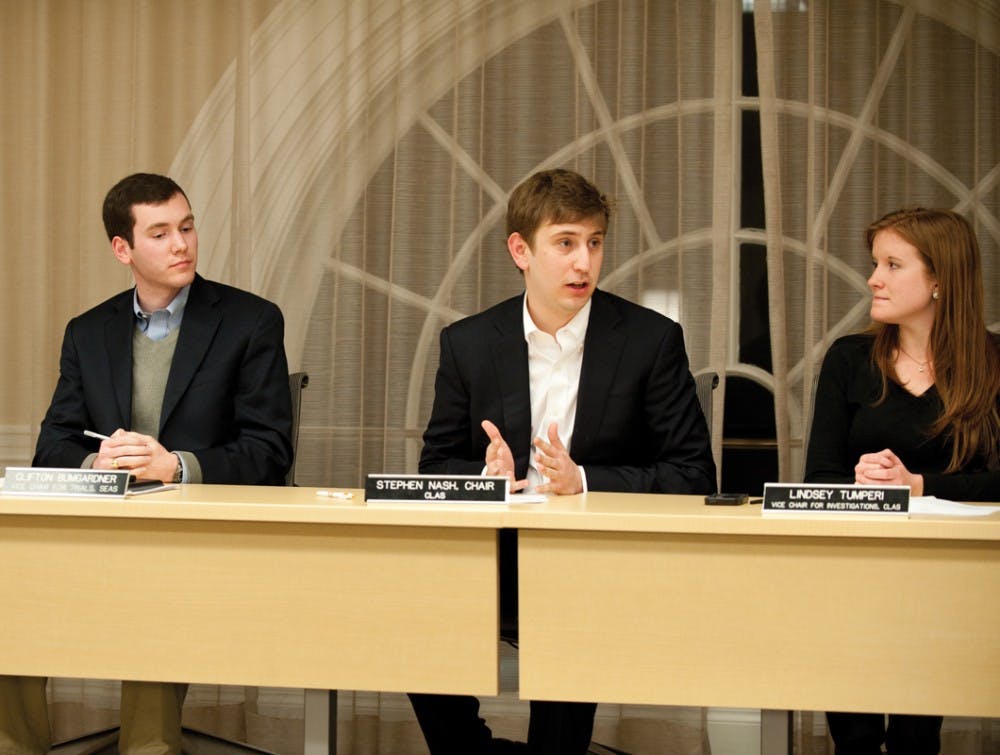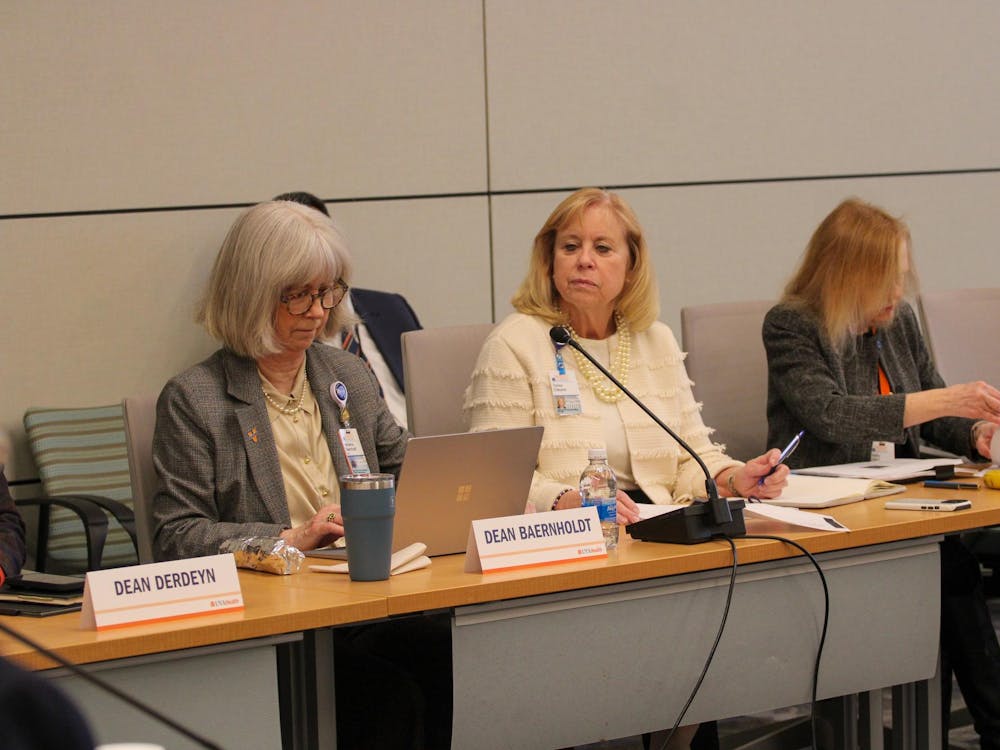The Honor Committee unanimously amended its bylaws Sunday evening to provide for the temporary implementation of the informed retraction amendment, which passed by the student body during elections this past week.
The amendment, proposed by second-year Law student Frank Bellamy, gives students who are reported for an honor offense the opportunity to admit guilt and leave the University for two semesters under informed retraction.
Honor Committee Chair Stephen Nash, a fourth-year College student, said Bellamy’s amendment left out many details about how the proposal was to be implemented, including the date on which the amendment would take effect.
The bylaw change immediately implements the version of informed retraction included in the Honor Committee’s Restore the Ideal Act — which was rejected by a margin of 41 to 59 percent last week — and allows the incoming Honor Committee to pass permanent bylaw changes on or before May 1.
“We are the students’ representatives,” Nash said. “The students voted for this opportunity, so we think [immediately enacting this proposal] would be most fair for a student reported tomorrow … It made sense to have the policies and procedures we thought made for the most effective informed retraction [enacted now].”
Fourth-year College student Justin Pierce, the co-chair of the Honor Committee’s Policies and Procedures Committee, said the informed retraction bylaw proposal could be implemented on its own, despite being presented to the student body as a packaged deal in the proposed Act.
“The consensus was these are the best bylaws going forward,” Pierce said. “While jury reform and informed retraction make sense together in our system, they don’t necessarily affect the implementation of the other.”
The Committee made three edits to its original proposal: updating the date the change becomes effective, naming informed retraction a “right,” and dealing with how informed retraction appears on a student’s transcript.
The Committee’s original proposal was set to take effect April 1, while these bylaws take effect immediately. Additionally, the original bylaws said informed retraction was a “privilege” rather than a right, but because Bellamy’s proposal was a constitutional amendment, Nash said the Committee deleted that language to reflect the new reality.
The Committee also decided to leave the bylaws ambiguous when explaining how an informed retraction will be noted on a student’s transcript.
“There’s a several week policy of applying to have new notations to go on the transcript,” Nash said. “We do not want to pass bylaws that do not reflect the immediate reality.”
Batten graduate student Nate Daugherty said the committee’s original language, which required notation indicating a student who submitted an informed retraction was on an honor leave of absence, was meant to encourage honest behavior.
“A big part of the Restore the Ideal Act was to get rid of perverse incentives and inspire students to be honest,” Daugherty said. “[We wanted to ensure] when students took the IR, they didn’t take the IR as an out.”
Nash said the Committee’s decision was ultimately a practical one.
“What we have before us are temporary and interim procedures for us to administer our system,” Nash said







